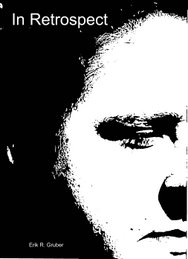Happy Friday, Zizzle-Zotians! So here’s the deal: I’ve been given an opportunity to write a Thanksgiving article for a nationally distributed newsletter, and I’d love it if you all would help. I hate to ask you to be test subjects…Actually I don’t hate to ask. You’re all smart dudes (and ladies?) and I appreciate your ideas and feedback. This is just a first draft. Some initial ideas and ramblings, consider it a sketch of what I’m getting at. If you don’t mind, tell me your thoughts. Where are the weak points? Where are the strong points? Could I organize the history differently to help the flow? Am I missing things? Does the end come too close to politicizing? Lay it on me, Zizzle-Zotians:
Thanksgiving means different things to different people. For some, it’s a rare opportunity to gather with family and friends, comforted by the presence of those we love. For others, it’s a time to take stock, to look at life and be thankful for the gifts we’ve been given. For the rest, it’s an excuse to fill up on turkey, stuffing, mashed potatoes and pumpkin pie before dozing off to football games and holiday parades.
Every child that grew up attending an American school has heard the story of the first Thanksgiving. The pilgrims, fleeing religious persecution, arrived at Plymouth Rock in December of 1620. They were ill-prepared for the harsh winter and of the 110 original settlers, only 50 survived.
In March of 1621 the fates of the pilgrims shifted when they met Squanto, a Native American who had learned English from earlier explorers. Squanto taught the settlers how to plant Indian corn and how to tap the maple trees for sap. He showed them which plants were poisonous and which had medicinal uses. He taught them how to fish for eel.
In the fall of 1621 the autumn harvest arrived, and thanks to Squanto’s help the Plymouth Colonists found themselves with a bounty of food. William Bradford, the governor of Plymouth, declared a day of celebration and thanksgiving, inviting Squanto and the local Native American tribe, known as the Wampanoag, to join in three days of feasting and fellowship. The settlers hunted for wild fowl. The natives contributed venison. It was a celebration of abundance, gratefulness, and unity.
Take a moment to think about that first Thanksgiving. Consider the event not in terms of our modern cultural context. Look beyond pie and football, and imagine what the first Thanksgiving meant to the Plymouth Colonists; what it meant to Squanto and the Wampanoag people.
The pilgrims had survived the winter against all odds. They arrived with nothing but the clothes on their backs. They had no shelter, no food, and little to hope for. Yet they survived thanks to the overwhelming generosity of Squanto and the Wampanoag tribe. The Native Americans had been living on the land for generations and had no reason to tolerate the pilgrims. Yet they welcomed these settlers and taught them how to live.
Imagine the first Thanksgiving. The pilgrims overjoyed because they finally had food, and an abundance at that. The Wampanoag people joining them in celebration, arriving with gifts of venison in a show of solidarity.
Perhaps the most remarkable aspect of Thanksgiving is how uniquely American it is in spirit. It commemorates the resiliency of the early settlers, their survival against all odds. It’s a reminder to be grateful for life and the land that sustains it. Foremost, Thanksgiving is a celebration of unity. It honors an occasion of togetherness, of two very different groups of people uniting in thankfulness, forever solidifying America’s status as a nation of immigrants and those that welcome them with open arms.
This is our American heritage.
Thanks for reading
Friday, November 2, 2007
Subscribe to:
Post Comments (Atom)


















6 comments:
One thing I truly appreciate about Thanksgiving is that focus remains virtuous. Christmas and Easter were hijacked by the Santa and Bunny myths, the 4th of July has become a spectacle, and Valentines day is as manufactured as a Halmark card.
While I still appreciate these other holidays for their own special reasons, I like the fact that Thanksgiving has held tough. It's really the most genuine holiday out there. It places the focus on family, togetherness, reflection, and appreciation. I'd say more, but I'm late for work.
Great article...I'll critique later.
Mr. A out!
Do we get to know what this is for? Or what the criteria is for writing? Does it have to be a certain length?
With that asked, some of my initial thoughts...
1) I don't feel like the first paragraph flows with the rest. I feel like you are going to write about what thanksgiving means to you, but then you shift direction and go into the history.
2) In the second paragraph you state that everyone has heard the story, yet you tell the story again. Are you just wanting to remind us of the story? Are there some details you think most missed? Do you just want to re-emphasize it?
3) The majority of the article is retelling what happened on and leading up to the first thanksgiving (not that that is bad, but is that the point? Or is the point to get more Zizzle-Zot perspective and less history? I don't know, just asking.)
4) In the 5th and 7th paragraphs you use a very similar lead in and it sounded a little redundant to me.
I hope this is what you wanted. I liked the article, but since you asked I tried to do my best to give some input that wasn't just "great job Gruber, you're the #1 writer of all time!" jk, but I hope it helps. I want to see all the drafts too!
Great job Gruber, you the #1 writer of all time!!
Zot-
Prior to giving adequate critique, I think it would be necessary to know just what it's for. It seems, from first read, that it is for a popular audience. Why do I say this? It seems like its not articulated in standard "Zotian" form. You are one of the most eloquent writers and I think you can form a sentence with the best of em. But I don't see your personality in this, like I usually do. This is understandable if you are trying to fit a style for a certain audience, reading a certain magazine. But if you have the freedom, write like you! Be the confident minded, opinionated Zot...
Your sentence structure was very readable, and I don't have much for grammar critique. It is a good article, but I personally want to see some Zot in it.
After reading your writing, I feel I can usually pick out something you write out of a number of samples. You have a style of your own. Kinda like the comma crazed, run-on, yet sensible, king Kerouac.
I just want to make sure you write like you. They obviously chose you for a reason. So give em Zot.
Give 'em some Zot!
I like it Grubeswazizzles... Cassel may be right though. Show the people some Zot! Make them appreciate the Zotian language and sentence structure. But, you may not be able to, and then you have a decent little story for all the Zotless dwellers out there.
Grubs,
Sorry this is so late, i was up hunting for the weekend, but i really don't have much to add after reading the other responses.
I would agree with what these guys said, it was well written, but could use more ZOT!
Sorry i couldn't be more help, but i look forward to the next drafts.
Lata!
Post a Comment